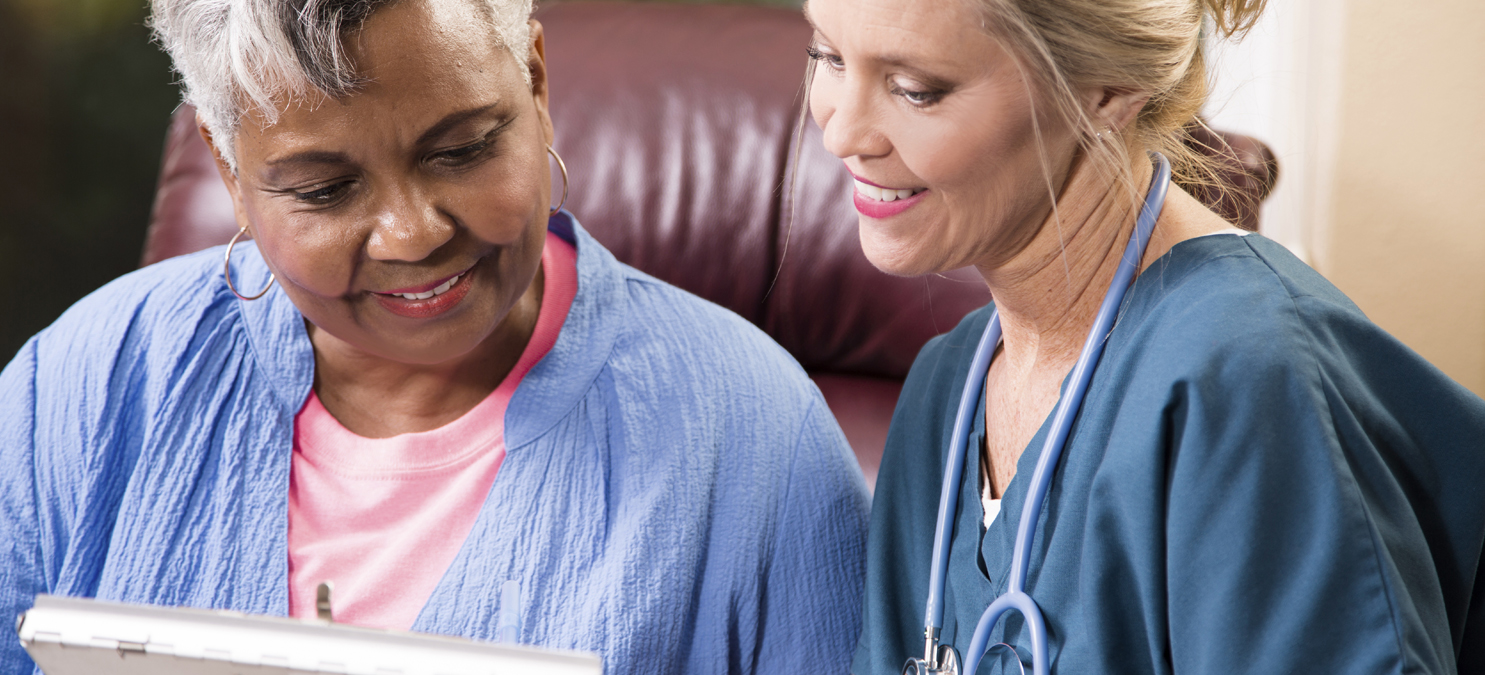What Do Speech-Language Pathologists Do?
Speech-language pathologists, sometimes called speech therapists, assess, diagnose, treat, and help to prevent disorders related to speech, language, cognitive-communication, voice, swallowing, and fluency in people of all ages. Speech-language pathologists work with people who cannot produce speech sounds or cannot produce them clearly; those with speech rhythm and fluency problems, such as stuttering or slurred speech or other speech impairment; people with voice disorders, such as inappropriate pitch or harsh voice; those with problems understanding and producing language; those who wish to improve their communication skills by modifying an accent; and those with cognitive communication impairments, resulting from brain injury, stroke, or attention, memory, and problem-solving disorders.
Speech-language pathologists often work with audiologists because some speech problems are a direct result of hearing problems. (See Audiologists section on this website.) For more information on speech-language pathologists, go to: http://www.bls.gov/ooh/healthcare/speech-language-pathologists.htm.
Where Do Speech-Language Pathologists Work?
In the U.S., nearly half of all speech-language pathologists work in schools; most others are employed by health care and social assistance facilities. Some speech-language pathologists also work in patients’ homes.
How Much Do Speech-Language Pathologists Earn?
In 2022, the average annual income reported by the Bureau of Labor Statistics (BLS) for speech language pathologists in the United States was $89,460. The New York State Department of Labor (NYSDOL) reports that, in 2023, speech language pathologists in New York earned a median annual salary of $104,606 (speech language pathologists in the 25th percentile made approximately $67,377 while those in the 75th percentile made approximately $128,675).
Supply and Demand
The Bureau of Labor Statistics projects that the number of jobs for speech-language pathologists in the U.S. will increase by 21% between 2021 and 2031. The New York State Department of Labor projects that the number of jobs for speech-language pathologists in the state will increase by 40% between 2020 and 2030.
The demand for speech-language pathologists will grow as an aging population may have increased difficulties with neurological disorders and associated speech, language, and swallowing impairments. Medical advances are also improving the survival rate of premature infants and trauma and stroke victims, who then need assessment and sometimes treatment. Employment in educational services will increase with the growth in elementary and secondary school enrollments, including enrollment of special education students. Greater awareness of the importance of early identification and diagnosis of speech and language disorders in young children will also increase employment for speech-language pathologists.
For more information on employment projections of speech-language pathologists by New York State labor regions, 2018-2028, click here.
Educational Requirements
In New York, speech-language pathologists are required to have a graduate degree in speech-language pathology. Master’s level programs in speech-language pathology include coursework in basic communication processes, audiology, scientific areas of speech-language pathology and language, as well as a supervised practice of at least 400 hours.
Most master’s programs require an undergraduate degree in speech-language pathology, audiology, or a relevant or more generic degree, such as communications disorders.
New York Licensure Requirements
To be licensed as a speech pathologist in New York, an individual must have finished a graduate degree in speech-language pathology from an approved educational program; completed at least nine months (36 weeks) of supervised clinical experience; and pass the Specialty Area test of the Praxis Series, Praxis II, administered by the Educational Testing Service (ETS).
For more information on the Praxis Series test for speech-language pathology, go to: http://www.ets.org/praxis/.
Speech-language pathologists are also required to take continuing education courses to maintain licensure. For more information on New York licensing requirements for speech-language pathologists, go to: https://www.op.nysed.gov/professions/speech-language-pathology/license-requirements.
Financial Support
Many of the colleges and universities listed below have scholarships and other funding awards available for speech-language pathology students. Please check the programs’ websites and with the financial aid office at the school.
In addition, the American Speech-Language-Hearing Foundation offers several scholarship opportunities. For information, go to: http://www.ashfoundation.org/grants/default.htm.
Education Programs in New York (subject to change)
Note: Please click on each school’s name to view the school’s website for available academic programs.
| Adelphi University 1 South Avenue Garden City, NY 11530-0701 (516) 877-4850 |
Brooklyn College-CUNY 2900 Bedford Avenue Brooklyn, NY 11210 (718) 951-5000 |
| Buffalo State College – SUNY 1300 Elmwood Ave Buffalo, NY 14222 (716) 878-4412 |
College of Saint Rose 432 Western Avenue Albany, NY 12203 (800) 637-8556 |
| Hofstra University 106 Davison Hall Hempstead, NY 11549 (516) 463-5508 or (516) 463-5509 |
Hunter College – CUNY 425 East 25th Street New York, NY 10010 (212) 481-4467 |
| Ithaca College 953 Danby Road Ithaca, NY 14850 (607) 274-3248 |
Lehman College- CUNY 250 Bedford Park Blvd. West Bronx, NY 10468-1589 (718) 960-8134 |
| Long Island University Brooklyn Campus 1 University Plaza Brooklyn, NY 11201 (718) 780-4122 |
Long Island University C.W. Post Campus 720 Northern Blvd. Brookville, NY 11548 (516) 299-2436 |
| Mercy College 555 Broadway Dobbs Ferry, NY 10522 (914) 674-7743 |
Nazareth College 4245 East Avenue Rochester, NY 14618 (585) 389-2525 |
| New York Medical College 40 Sunshine Cottage Rd Valhalla, NY 10595 (914) 594-4000 |
New York University Steinhardt School of Culture, Educ, & Human Dev 665 Broadway, 9th Floor New York, NY 10012 (212) 998-5230 |
| SUNY Plattsburgh 101 Broad Street Plattsburgh, NY 12901 (518) 564-2000 |
Queens College- CUNY 65-30 Kissena Blvd. Flushing, NY 11367 (718) 997-5000 |
| St. John’s University 8000 Utopia Parkway Jamaica, NY 11439 (718) 990-2000 |
University at Buffalo -SUNY 3435 Main St Buffalo, NY 14214 (716) 829-2797 |
| SUNY New Paltz 1 Hawk Drive New Paltz, NY 12561 (845) 257-3620 |
SUNY Fredonia 2142 Fenton Hall Fredonia, NY 14063 (716) 673-3808 |
|
500 W 185th St |
Syracuse University 900 Crouse Ave Syracuse, NY 13244 (315) 443-1870 |
| Teacher’s College Columbia University 525 West 120th Street New York, NY 10027 (212) 678-3410 |
Touro College 1610 E 19th Street Brooklyn, NY 11229 (718) 787-1602 |
| The Graduate Center- CUNY 365 Fifth Avenue New York, NY 10016 (212) 817-8800 |
Iona College 715 North Ave New Rochelle, NY 10801 (914) 633-2000 |
| Molloy University 1000 Hempstead Ave Rockville Centre, NY 11571 (888) 466-5569 |
Marymount Manhattan College 221 E 71st Street New York, NY 10021 (212) 517-0400 |
| SUNY Cortland 21 Graham Ave Cortland, NY 13045 (607) 753-2011 |
Pace University-New York 1 Pace Plaza New York, NY 10038 (866) 722-3338 |
| D’Youville University 320 Porter Ave Buffalo, NY 14201 (716) 829-8000 |
Ithaca College 953 Danby Rd. Ithaca, NY 14850 (607) 274-3011 |
| Binghamton University Decker College of Health Sciences 48 Corliss Avenue Johnson City, NY 13790 (607) 777-2171 |
SUNY Stony Brook School of Health Professions 101 Nicolls Road Stony Brook, NY 11794 (631) 444-2252 |
Additional Web Links
For more information about speech-language pathologists, go to the websites for:
The American Speech-Language-Hearing Association http://asha.org/.
The New York State Speech-Language-Hearing Association http://www.nysslha.org/.
The American Academy of Audiology http://www.audiology.org/.
[whohit]Speech-Language Pathologists[/whohit]


